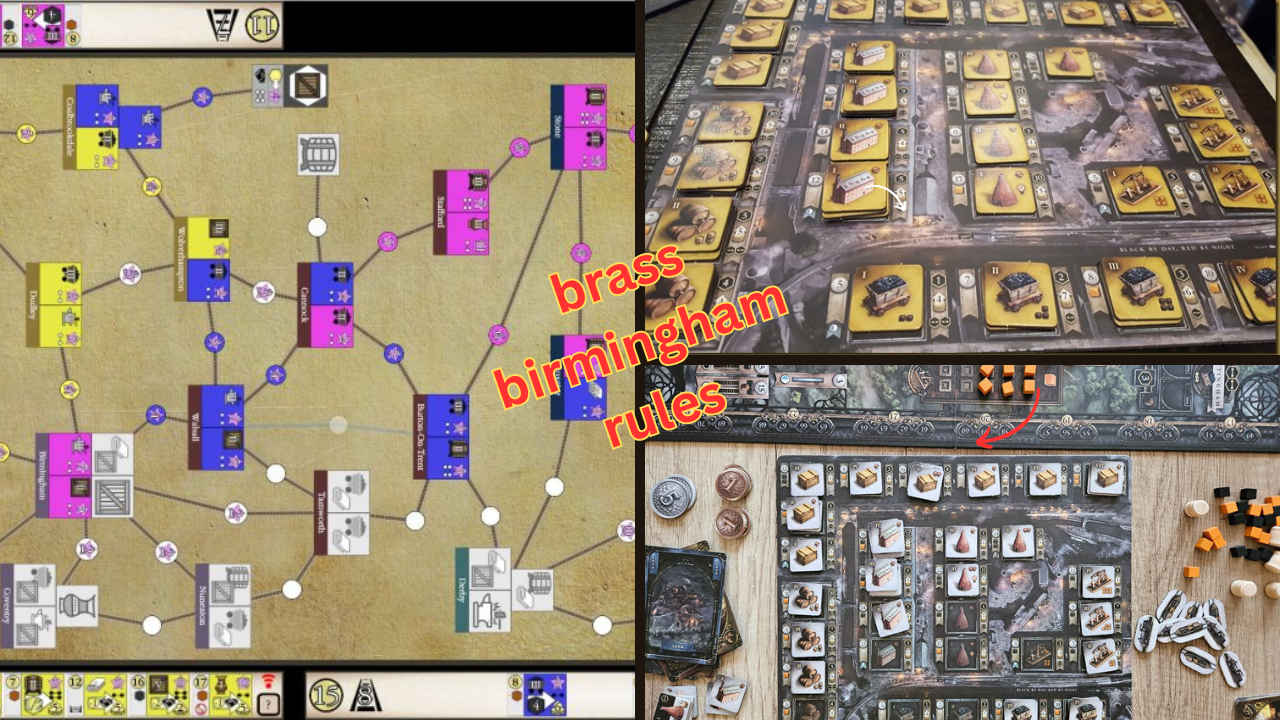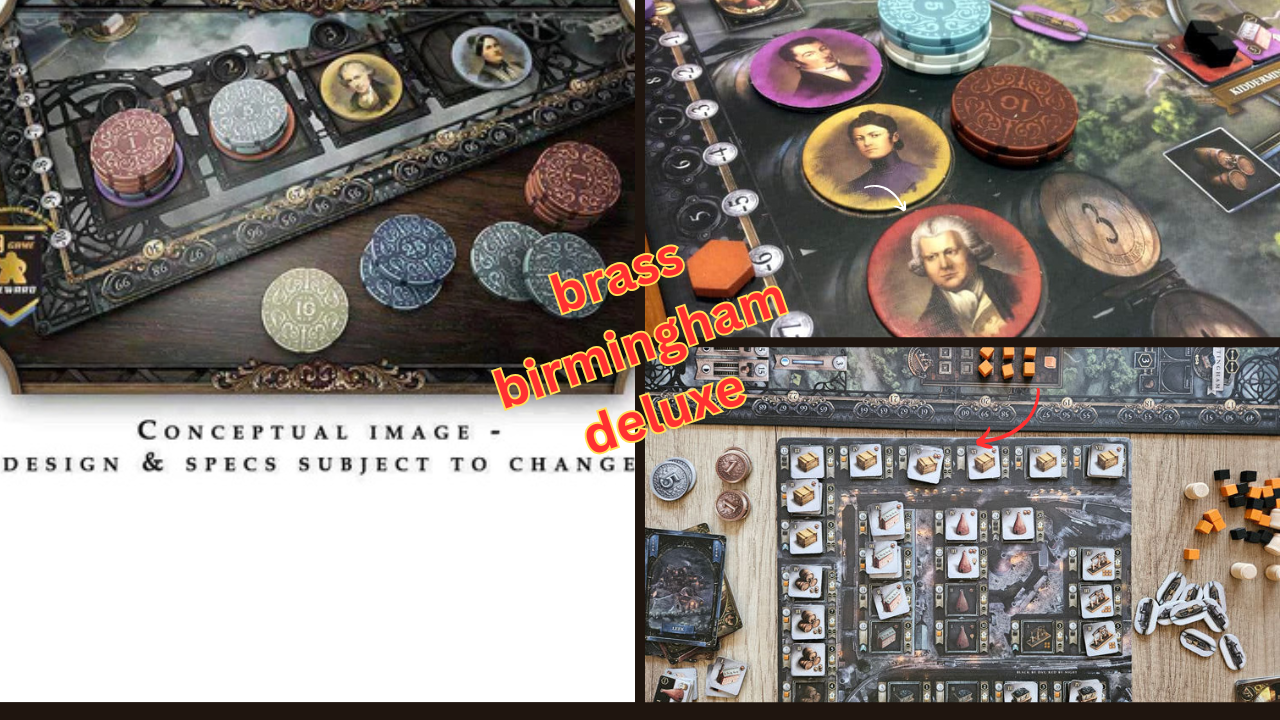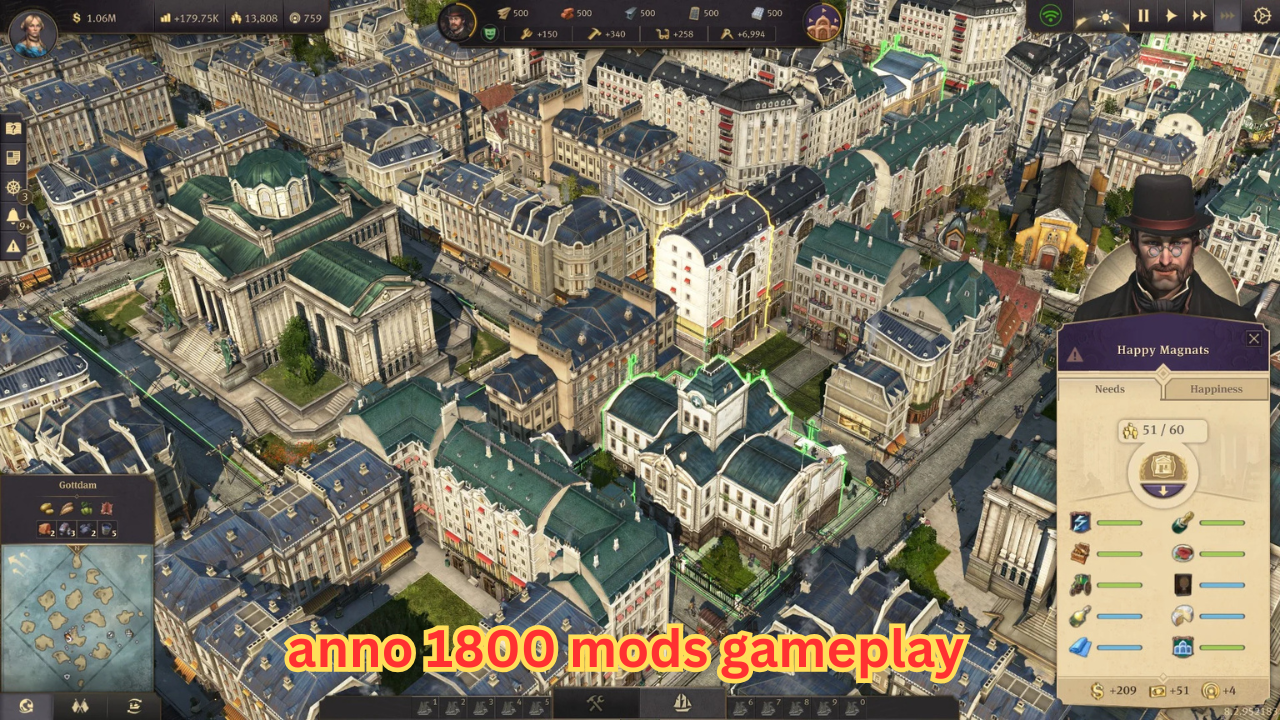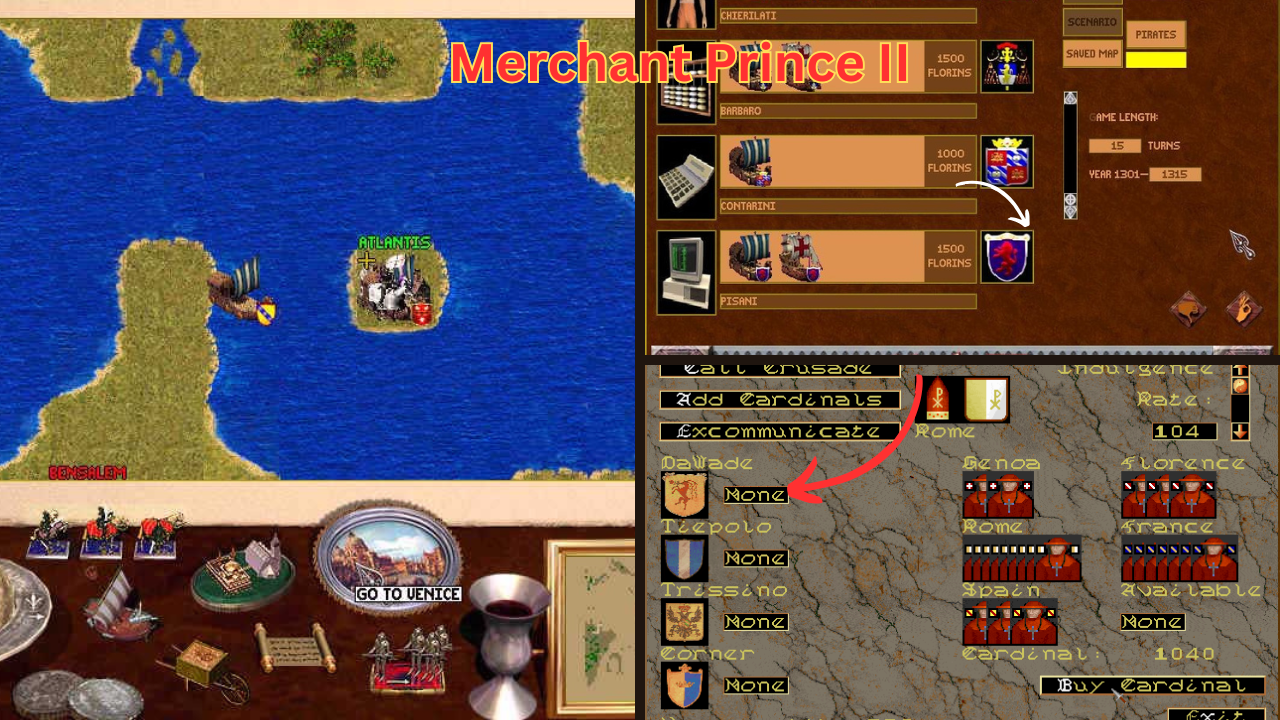If you love deep strategy board games that test your planning and economic skills, Brass: Birmingham is one of the finest ever made. Designed by Gavan Brown, Matt Tolman, and Martin Wallace, this game is the spiritual successor to Brass: Lancashire. It builds on the original with new mechanics, updated artwork, and more dynamic gameplay.
Whether you’re new to the world of Brass or looking to master its complex system, this guide explains every rule, setup detail, and phase — written in a human-friendly way that makes the game easy to understand.
Overview of Brass: Birmingham
Brass: Birmingham is an economic strategy game set during the Industrial Revolution in England. Players take on the roles of ambitious entrepreneurs, building industries, developing networks, and trading goods across the West Midlands.
The game takes place over two eras:
- Canal Era (1770–1830)
- Rail Era (1830–1870)
Your goal is to earn Victory Points (VP) through smart industrial development, strategic network expansion, and clever use of resources like coal, iron, and beer.
What’s Inside the Box
The Brass: Birmingham game box contains:
- 1 double-sided board (map of Birmingham and surrounding towns)
- 4 player mats
- 77 industry tiles (representing coal mines, iron works, cotton mills, breweries, etc.)
- 4 sets of link tiles (canal and rail links)
- 100+ money tokens
- 66 cards (location and industry cards)
- Coal, iron, and beer cubes
- Victory Point markers
Each player chooses a color and takes a matching player board, money, and cards.
Game Setup
- Choose Era:
The game starts in the Canal Era. The board’s canal side should face up. - Distribute Player Components:
- Each player takes a player mat, money tokens (17 pounds), and a deck of 8 industry tiles (level 1 of each type).
- Place your player marker on the income track at £0.
- Shuffle and Deal Cards:
Each player draws 8 cards from the shared deck. These cards will determine where and which industries you can build. - Prepare the Market:
Place coal, iron, and beer cubes on their respective tracks on the board. - Determine Turn Order:
Randomly assign the first player order at the start. In future rounds, order depends on who spends the least money in the previous round.
Once setup is done, you’re ready to start building your industrial empire.
Game Phases and Turn Structure
Each round in Brass: Birmingham has three main parts:
- Players Take Two Actions Each
- Income Phase
- Turn Order Phase
Let’s break them down.
A. Player Actions
On your turn, you can perform two actions from the list below. Each action requires discarding a card (location or industry card).
1. Build an Industry
- Discard a location card to build any available industry in that city.
- Or discard an industry card to build that industry type in any connected city.
- Pay the required cost (money + resources).
- Some industries also require coal or iron from the market.
Industries include:

- Cotton Mills
- Iron Works
- Coal Mines
- Breweries
- Pottery
- Manufactured Goods
Each has different income and scoring potential.
2. Build a Link
- In the Canal Era, build up to two canal links connecting cities.
- In the Rail Era, build up to two rail links, but each costs coal and money.
- Links connect your network and allow goods to move between locations.
3. Develop
- Remove two of your lowest-level industries from your mat (permanent discard).
- Pay the iron cost.
- This lets you build higher-level industries sooner.
4. Sell Goods
- You can sell finished goods (from cotton mills, manufactured goods, or pottery).
- Each sale must be connected to a market and have beer available for consumption.
- After selling, flip the sold industry tile face down to show it’s “used” and ready to score.
5. Take a Loan
- Take £30, £40, or £50 from the bank.
- Move your income marker three levels down on the track (less future income).
6. Scout (optional rule)
- Discard two cards to gain a wild location or industry card.
- Useful when you don’t have the right cards in hand.
B. Income Phase
After all players have taken two actions, everyone earns income based on their current income level (shown on the income track).
Used industries (flipped tiles) usually increase your income permanently.
C. Turn Order Phase
Turn order for the next round is determined by how much money each player spent in the previous round.
- The player who spent the least goes first next round.
- Ties are broken by current turn order.
This mechanism rewards efficiency and long-term planning.
Era Transition: From Canal to Rail
After the Canal Era ends (when the card deck runs out), players score their canals and industries.
Scoring for Canal Era:
- Flipped industry tiles score points shown on the tile.
- Each link (canal) connected to flipped tiles scores 1 VP per connection.
Then:

- Remove all level 1 industries from the board.
- Flip the board to the Rail Era side.
- Each player receives £30 and new cards.
- Coal and iron markets reset.
Now the Rail Era begins — the stakes get higher!
Rail Era Differences:
- Players build rail links (more expensive but worth more points).
- Industries at higher levels yield greater income and victory points.
- Some industries (like breweries) stay important for trading and selling.
The Rail Era continues until the card deck is once again depleted.
End of Game Scoring
When the Rail Era ends, a final scoring phase occurs.
Players add up:
- Industry Points – from all flipped (used) industry tiles.
- Link Points – canals and railways connected to flipped tiles.
- Income Level Bonus – based on final position on the income track.
- Tiebreaker – remaining money, if total scores are tied.
The player with the most Victory Points wins the game and is declared the master industrialist of Birmingham!
Key Strategies and Tips
Winning at Brass: Birmingham requires more than luck. You must plan every action to fit your long-term economic engine. Here are some expert tips:
1. Build Connectivity Early
Your network of canals and rails is crucial. Without connections, you can’t sell or transport resources. Always think two or three turns ahead when placing links.
2. Develop Smartly
Don’t flood the board with low-value industries. Instead, use the Develop action to skip early-level tiles, making room for stronger level-2 and level-3 industries later.
3. Manage Coal, Iron, and Beer Efficiently
- Coal must always travel through connected links.
- Iron can be taken from anywhere on the board.
- Beer is required for selling goods — plan your breweries carefully.
4. Balance Income and Debt
Loans are necessary early in the game but can hurt your income track. Take loans strategically — ideally before your income rises too high.
5. Adapt to Market Conditions
Markets fluctuate as resources are bought and sold. Always keep an eye on the coal and iron prices; timing your builds can save huge amounts of money.
6. Use Beer Wisely
Beer is often the bottleneck for selling goods. Brewing extra beer or connecting to opponents’ breweries can give you a huge edge in scoring.
7. Optimize Turn Order
Spending less one round may let you play first next round — an underrated but powerful advantage for blocking locations or securing key resources.
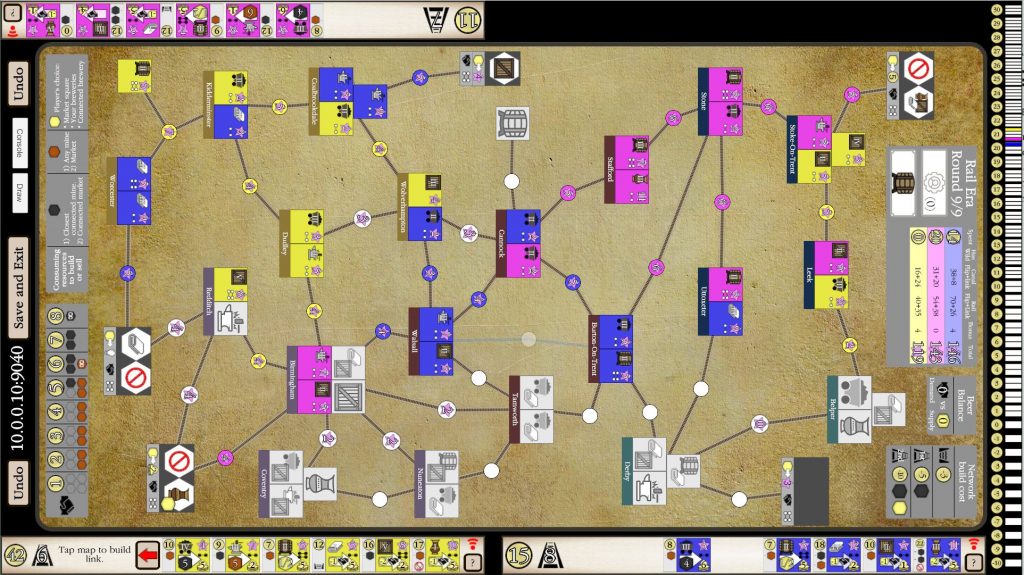
Why Brass: Birmingham Is Special
Unlike most economic games, Brass: Birmingham offers a perfect blend of planning, tension, and competition. It rewards smart decisions and punishes wasteful moves. Every link you build matters.
The interaction between players is intense: your network can depend on another’s coal mine, and vice versa. There’s constant cooperation and competition in every move.
Its variable setup, two-era structure, and dynamic market make every playthrough different. That’s why Brass: Birmingham often ranks in the Top 3 board games worldwide on BoardGameGeek.
Quick Summary of Rules
| Action | Requirement | Benefit |
|---|---|---|
| Build Industry | Discard a location or industry card | Expands your production network |
| Build Link | Pay cost + coal (in Rail Era) | Connects cities for trade |
| Develop | Pay iron cost | Unlocks better industries |
| Sell Goods | Use beer + market connection | Flips industry for income & VP |
| Loan | Reduce income, gain cash | Increases short-term liquidity |
| Scout | Discard 2 cards | Gain wild card |
Final Thoughts
Brass: Birmingham isn’t just about rules — it’s about mastering an evolving economy. Every decision has long-term consequences. The balance between building, selling, and connecting defines your success.
It’s complex at first glance but deeply rewarding once you understand its rhythm. After a few plays, you’ll start seeing the beauty of the system — the moment your industries flip, income flows, and your empire thrives.






